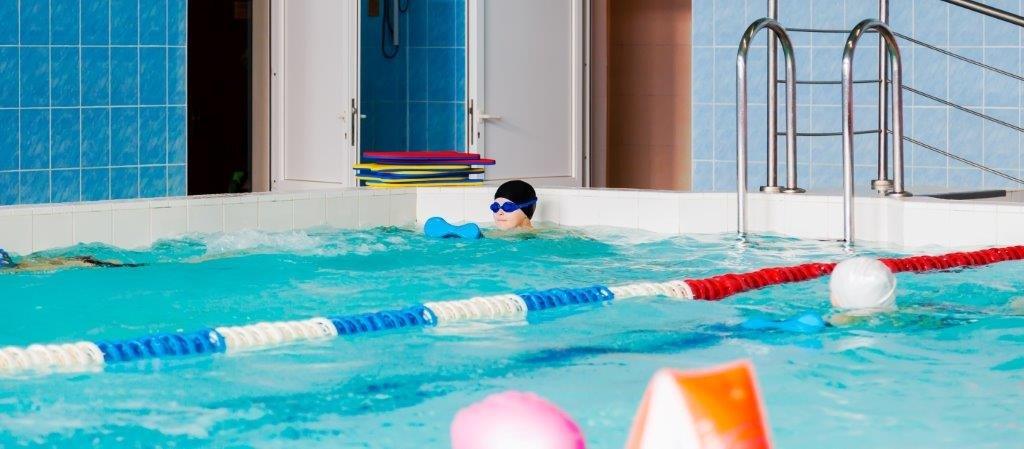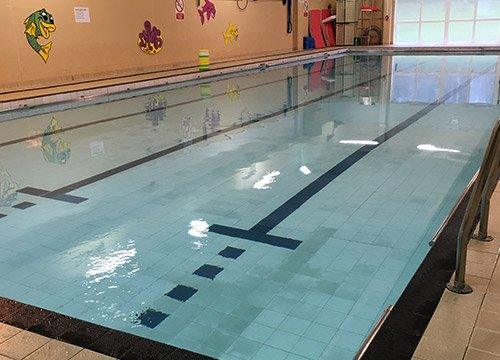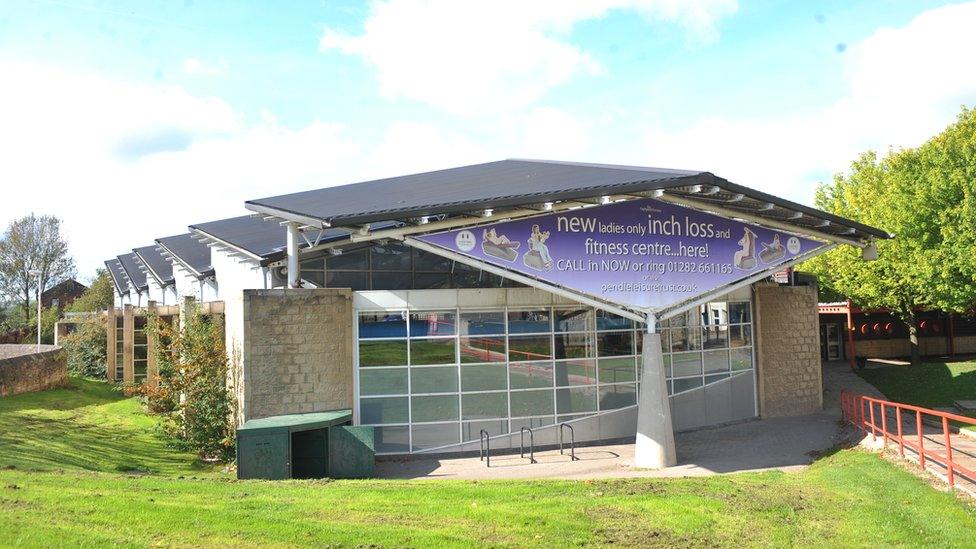Pools and sports halls 'could be forced to close'
- Published

Council leisure facilities 'need a cash boost'
At a town hall meeting last week, Pendle Council in Lancashire heard a solution to a looming £4m deficit may be to close a sports hall or pool.
Councillors told the meeting such a closure would be unacceptable, and urged every effort to keep the borough's three leisure centres open.
Across England, cash-strapped councils are struggling to run and maintain sports centres, say town hall bosses.
The government said it was for councils to decide how to spend their budgets.
But the Local Government Association, representing councils in England, says ministers should commit £400m in next month's Budget to upgrade and renovate leisure facilities.
The cash is crucial to combat major health issues like obesity, diabetes and heart disease, it argues.
It warns that the majority of council-owned sports halls and swimming pools are at risk of becoming "old and tired" as local authorities' budgets become increasingly squeezed, leaving them unable to afford the cost of refurbishments.
In the 10 years to 2020, councils will have seen a £16bn reduction in core government funding, says the LGA.
It leaves them having to plough all their existing resources into meeting the increasing demand for adult and children's social care and tackling homelessness, at the expense of investing in leisure facilities.

Coleford pool in Forest of Dean is over 30 years old
At Coleford in the Forest of Dean, the local leisure centre needs significant investment to keep it open in the medium term, and the council says finding this additional money without impacting on other services for the community is not possible.
"The leisure centre is over 30 years old and needs major investment to bring it up to standard - in fact, ultimately it really needs replacing and we can't afford to do it on our own," explained a council spokesman.
The most recent figures from Sport England showed 58% of sports halls and 60% of swimming pools were more than 20 years old in 2015 - and of these nearly a quarter had not been refurbished in 20 years.
"Councils are doing all they can to keep leisure centres up and running, but many are in desperate need of refurbishment," said Gerald Vernon-Jackson, chairman of the LGA's culture, tourism and sport board.
"Government has a chance in the autumn Budget to breathe new life into our leisure centres, which saves them from falling beyond repair and forcing them to close."

Pendle Leisure Centre bosses hope to boost revenue
At Coleford, the council, along with the trust which runs the centre, says it is doing all it can to ensure it stays open.
"The community have a lot of aspirations for the site, and as a council we need to take a broad, long-term view," added the spokesman.
"We will have to look to partner funding, perhaps with national sporting bodies or health providers, if we are able to achieve people's desire to create a community hub with a range of facilities."
In Pendle, the leisure centre trust is proposing increasing revenue by turning one sports hall into a soft play area and dance studio - though some local groups say this will leave them with nowhere to train.
A spokesman for the Department of Communities and Local Government said: "Our historic four-year funding settlement provides councils with £200bn and the certainty to plan ahead.
"It's for councils themselves to determine how they spend this on services that people want and expect, such as leisure facilities."